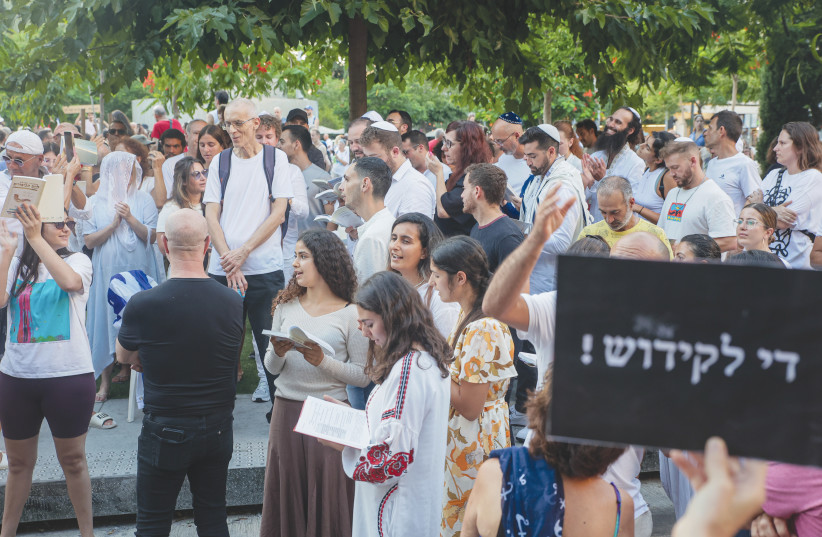Orange juice has no idea how many grams of sugar it contains. Because it can’t read the label. It might have a sense of its own acidity, but without the correct information, it can only guess. Which makes it difficult for it to reach a state of perfection. What is even more unfortunate for the morning beverage, is that the vital statistics are written on a piece of paper, which is invariably stuck to the outside of the bottle.
And any orange juice worth its salt (or sugar) will acknowledge that it is impossible to read the label from inside the bottle.
Along with other diaspora Jews and supporters of Israel, I have been told to “stay in my lane” and that I have “no skin in the game,” when commenting on happenings in Israel. Although the first part of the statement is of little value, and the other is untrue, it is often used to silence a disagreed with point of view and perspective.
I learned this the hard way in a series column in the South African Jewish Report just over a year ago. In the columns, I shared my experience of visiting Israel for the first time since the start of the pandemic. It was a joyous visit for my son’s wedding, and I shared my love of the experience. But I also expressed concern about the attitude and hostility we faced in many sectors. It saddened me that I felt more alien to Israel than I have ever felt before.
Further perspective is that I am a morning talk show host in South Africa. I write columns for both Jewish and non-Jewish press and often find myself defending Israel, providing perspective and truth, and dealing with the consequences that support for Israel brings in a country with a vehemently anti-Israel government. There is a significant personal cost to me and to my family.

For that reason, I didn’t expect the hostility and anger from people who thought that my column was out of line. I chafed against it. I defended it and vowed that no one would tell me I had no right to an opinion. And yet, I chose to find other things to write on even as I witnessed Israelis turn on each other, as to a small extent I felt some had turned on me.
THE TEL AVIV prayer service changed this.
While the Tel Aviv debacle was going on, I was in synagogue in Johannesburg where I came across the story of Hillel the sage. As we might know, he lived and studied for some time in Babylon at the time of the 2nd temple. The Talmud tells the story of how he traveled to Israel to teach the “Torah that they had forgotten.”
And although I am not in any way comparing myself or others in the Diaspora on any level to Hillel, the story is clear on the notion that there is much to be learned from those outside the proverbial bottle. Because sometimes an “outside” perspective is healthy, valuable, and important. Especially when it comes from a place of love.
How far will you go?
There are limits of course. Whereas it would be inappropriate to weigh in on garbage collection in Ra’anana for example, it is perfectly appropriate to lament the lack of respect, the lack of dialogue, and the disregard of the value system of others.
And the ruling by the Tel Aviv Municipality, the confirmation by the court, and the behavior of those who disrupted a form a prayer that has been observed for thousands of years speak to all of the above.
Worse, it discredits the protest movement and makes liars of honest people who object to the extent of the so-called reform.
It is reassuring that in this case, even the orange juice can tell that it has gone sour. That withstanding, it is still time that those of us on the outside of the bottle are prepared to read the label out loud – even at the risk of being pulped.
The writer is the South African author of three books. He is a featured weekly columnist on News24 and Jewish Report and is the morning talk show host on the Morning Mayhem. He is head of marketing and people at Synthesis Software Technologies.
